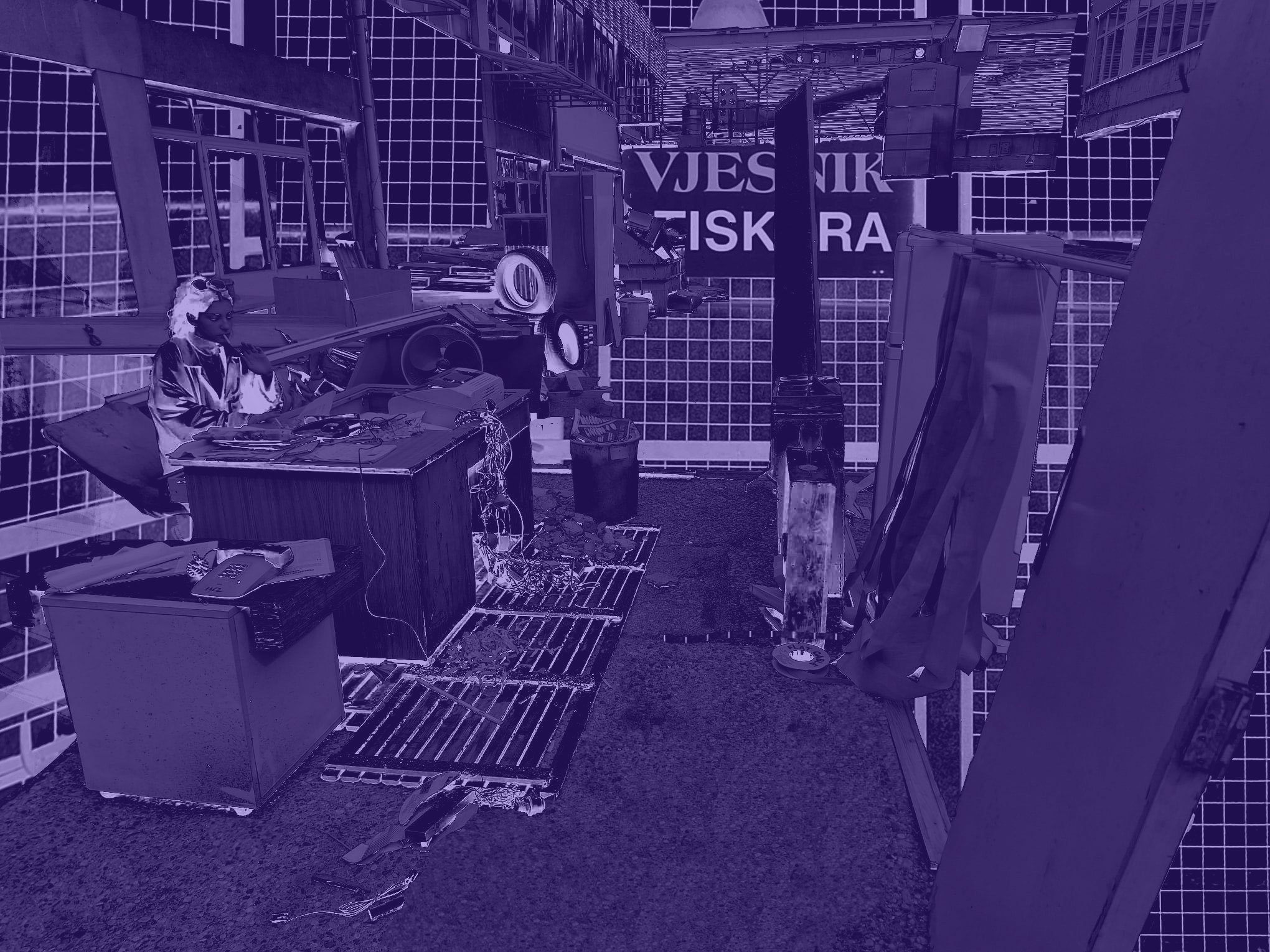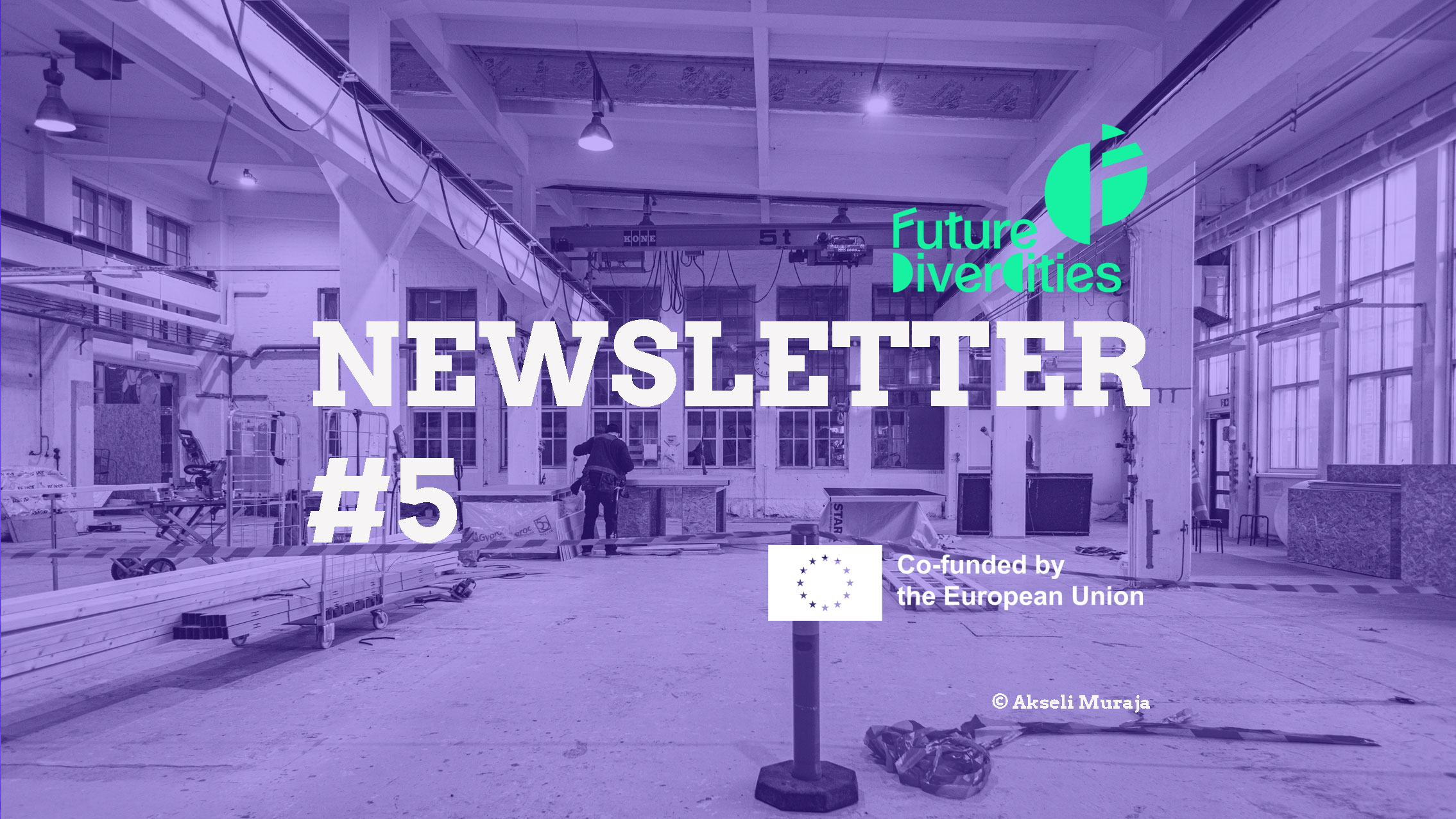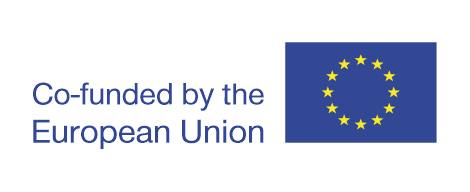Where do we go now? Assessment of the current situation - April 2024
As we are coming soon to the half of the Future DiverCities project (14 June 2024), we are proud to share some of the Project results and updates. To start with, let’s have an overview with some figures that illustrate the current situation on the ground, the challenges and successes, but also the struggles and attempts of this collective project.
The first year (September 2022-December 2023) was rich. We invite you to discover in number our activities, communication, and tools provided since the 13 partners launched the Future DiverCities project. Delve into the heart of the project with concrete examples such as the number of participants who attended the Future DiverCities events, the number of visitors who have access to our website since we launched it in 2022, but also the number of bags of trash collected to clean the area in Liepaja or the number of pizzas eaten to test the community oven in Londa (Florence). All the answers are gathered HERE.
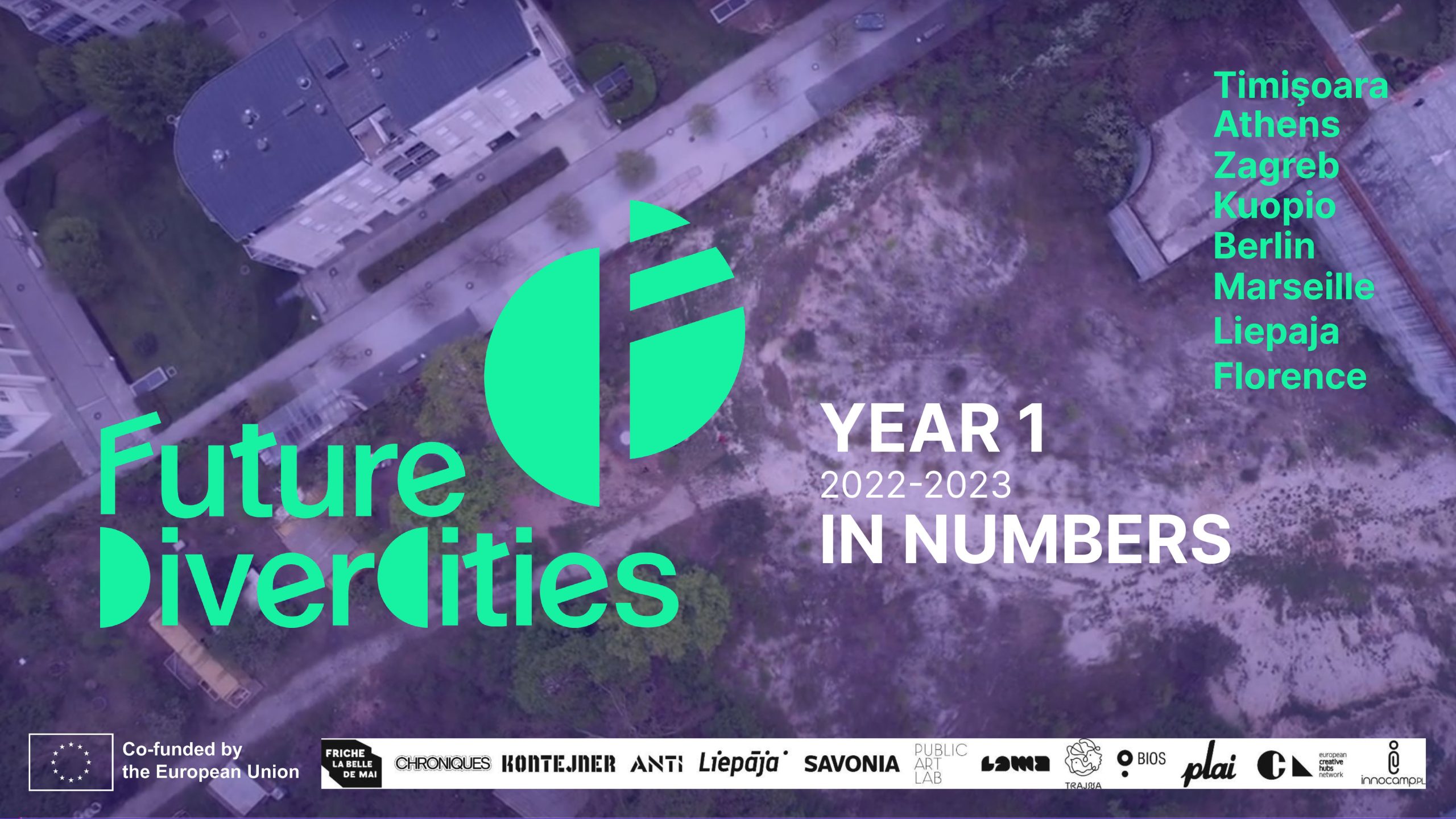
Webinars and podcasts
In 2023, we presented the first cycle of webinars developed by Trajna and Innocamp PL, originally produced for Future DiverCities partners and their local coalitions to build new capacities on innovative approaches for tackling the theme of temporary artistic uses, and urban and territorial regeneration. The relevant knowledge is transferred to support local initiatives within the project, but it’s also an open and free opportunity for a wider community of European practitioners, social innovation and cultural organisations, and active citizens.
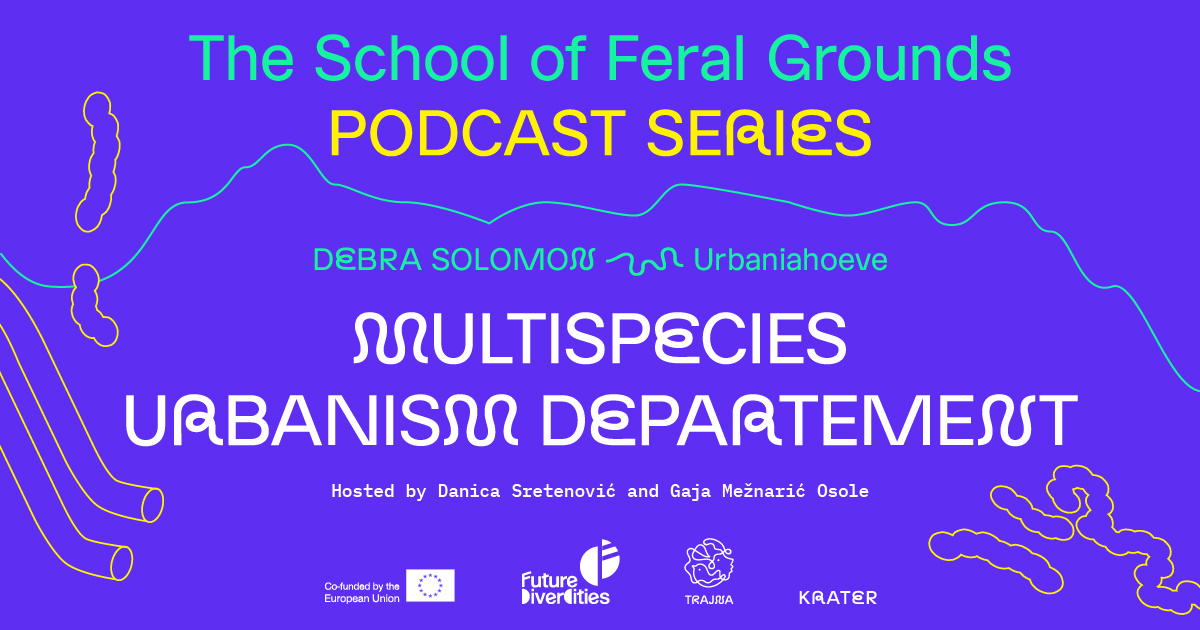
Under the title “The School of Feral Grounds“, Trajna proposed regular sessions of webinars
and podcasts on urban ecology which nurtures a collaborative learning environment for thinking and engaging with untamed urban sites. The cycle is available online: https://future-divercities.eu/the-school-of-feral-grounds-a-learning-program-by-trajna/
Follow soon their next podcast! In an inspiring conversation with the infrastructure activist Debra Solomon, Trajna discusses the imperative for new forms of just urban development and spatial practice that foster reciprocal relationships between humans and more-than-humans. The discussion explores speculative fabulation, envisioning a scenario where every European city establishes a department for multispecies urbanism to address the intertwined challenges of climate change and democracy. This department would engage with various locations across Europe, showcasing the conceptualization and implementation of a multispecies-sensitive public administration in locations such as the Future DiverCities pilot sites: Kuopio, Liepāja, Marseille, Athens, and Londa.

The second cycle on changemaking, facilitated by Innocamp PL, included the training and mentoring support for changemakers and their stakeholders. The participants are invited on a self-development journey to critically analyze their resources for changemaking in the context of city regeneration and their role within the Future DiverCities pilots and other project phases.
Presentations, masterclasses, portfolios, and curriculum are available ONLINE.
Follow INNOCAMP PL next webinar that presents our partner Liepaja as a case study for changemakers’ capacity building, showcases the multi-stakeholder collaboration in abandoned spaces in the pilot site of Karosta, and shares the participants’ experiences. More information HERE.
Impact assessment
Evaluating, assessing, monitoring…Nowadays, it seems impossible to implement a project without thinking, in the earlier stages, of a final assessment. This seemingly mandatory step can seem simple at first glance: « Just make a questionnaire! » Yes, of course, but it is not that easy.
In the context of Future DiverCities, a team of researchers from the University of Savonia (Finland) has been developing an impact assessment protocol, based on scientific research as well as field tests to make sure that the method is adaptable and replicable in different contexts.
The method serves as a comprehensive framework for evaluating the past and potential future impacts of a project; whether they are positive or adverse. Consequently, the exercise can be done at various stages of project implementation with all stakeholders involved; in our specific case project managers, artists, and participating citizens.

Feel free to try and use the impact assessment protocol for your projects (link HERE), and share with us the results!
Sensitive mapping: What does it mean?
Beyond its fundamental environmental aspect, the project places a strong emphasis on public participation and citizen engagement for the co-design of artistic and cultural initiatives contributing to the urban regeneration of a space.
To achieve this, one of the ongoing activities in all pilot spaces involves the creation of sensitive maps with groups of local stakeholders, including inhabitants, neighbors, NGOs, nonprofits, and local public authorities, forming what we refer to as local coalitions.
The objectives of this activity are manifold. Among others, we aim to gain an understanding of the space from the users’ emotional perspective. Each vacant space carries with it past, present, and future uses influenced by the emotions people associate with it. Consequently, future uses of a space can be envisioned by considering this sensitive data collection, which aims to evoke people’s emotions.
By calling for people’s emotions and investing time in collecting them, we offer an alternative method to engage public participation and (re)create narratives about the space and its future uses.
This activity is made possible by L’Atelier des Chercheurs, a collective of researchers from France who develop collaborative and open-source online tools facilitating visual storytelling and presentations. They have adapted their Do.Doc tool to incorporate geographical and sensitive mapping, thereby enabling the creation of maps that transcend the visible and convey the stories participants wish to share.
CLICK HERE to discover the online sensitive map created by our partner KONTEJNER in Vjesnik pilot (Zagreb, Croatia)
